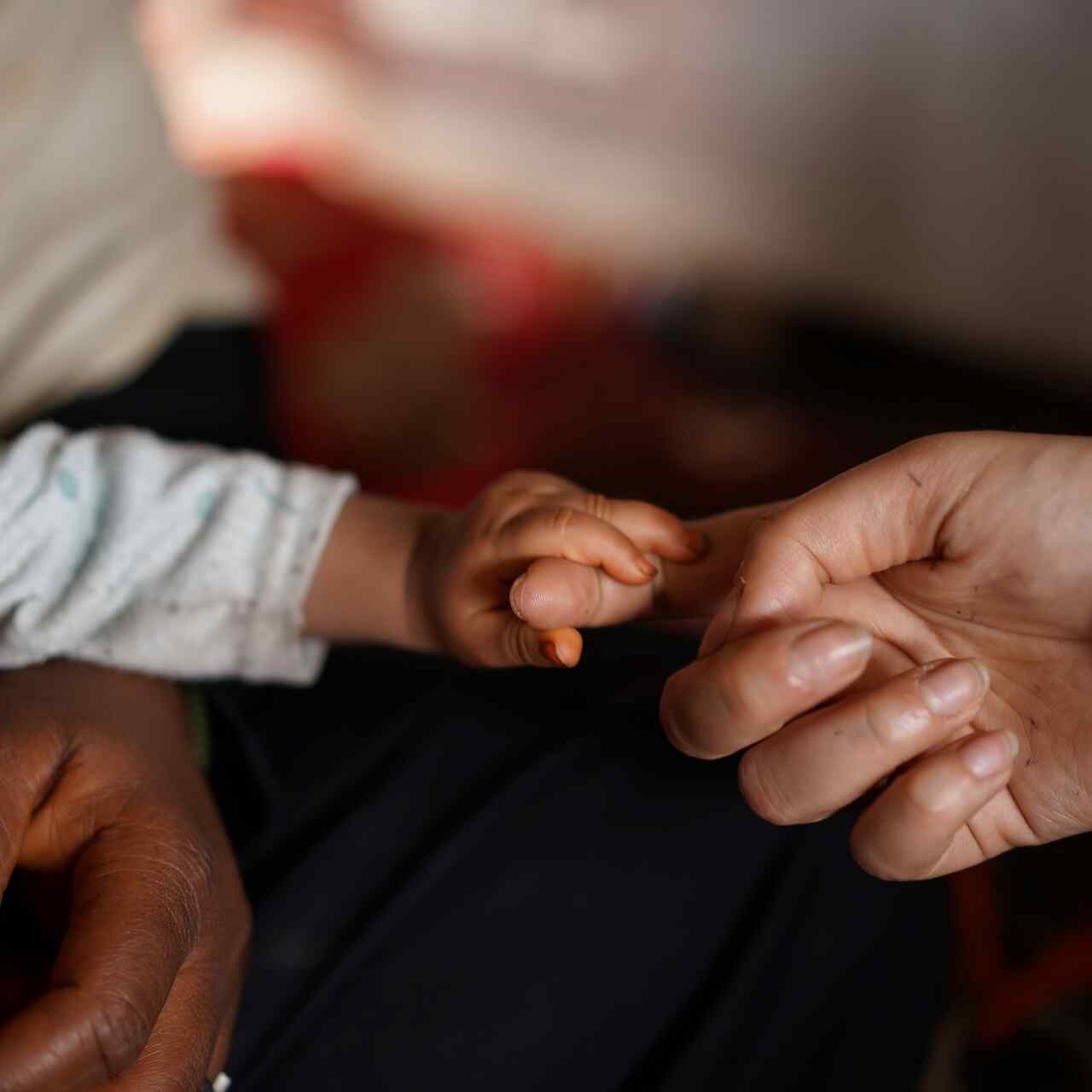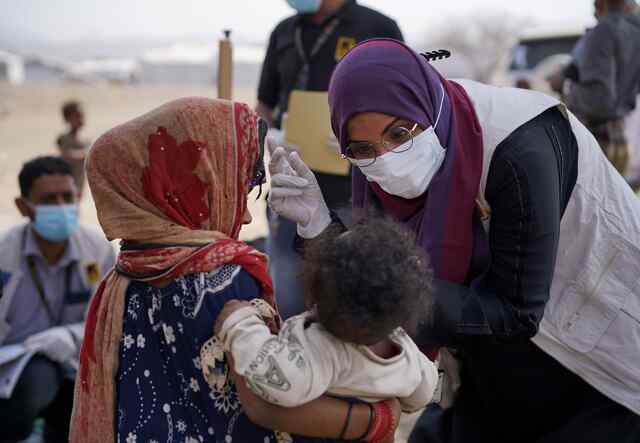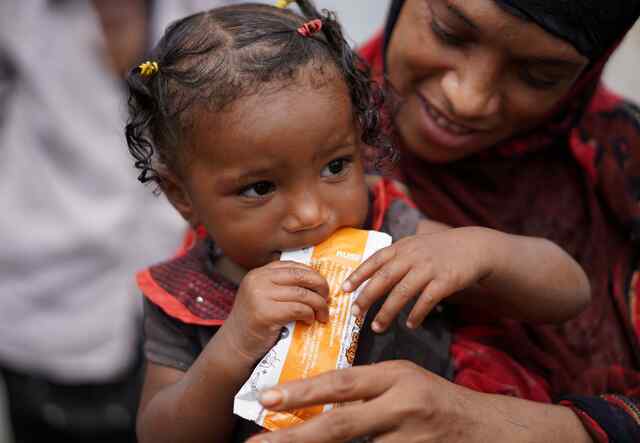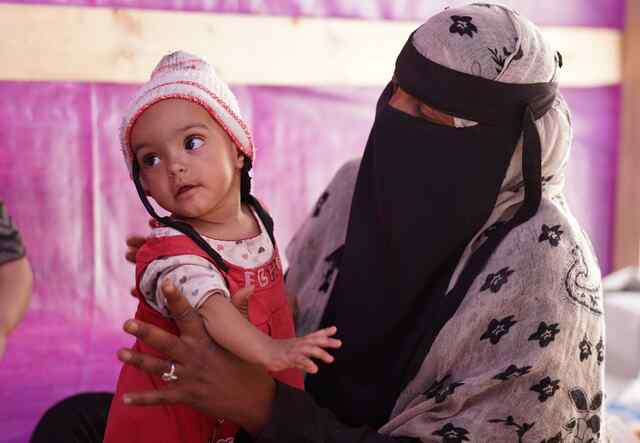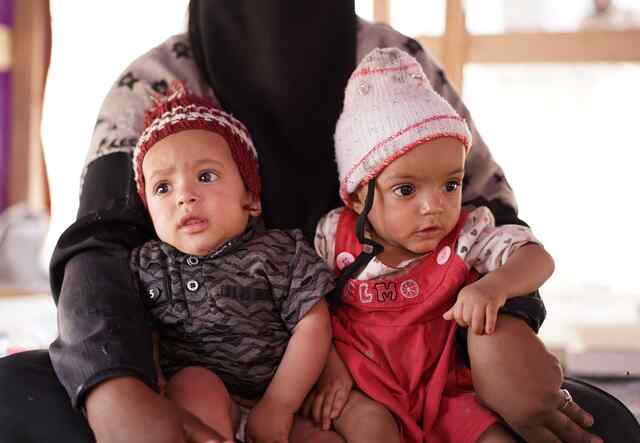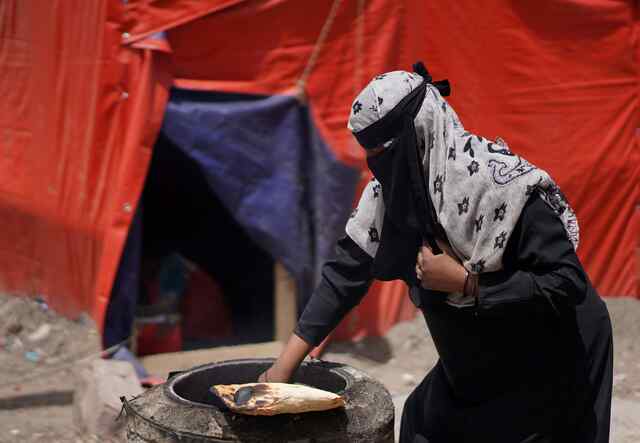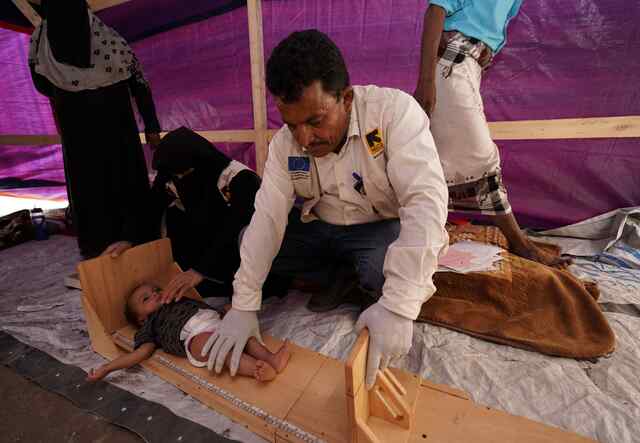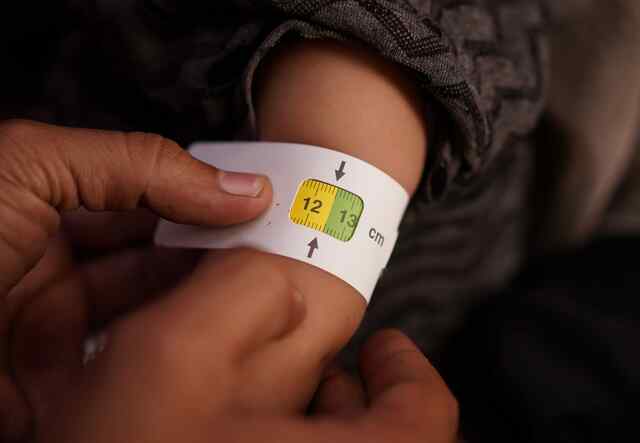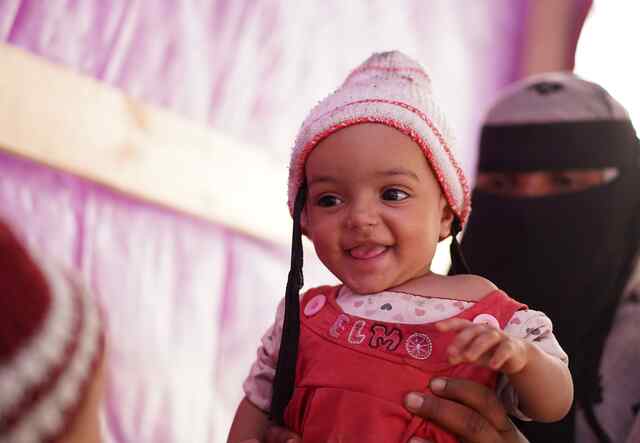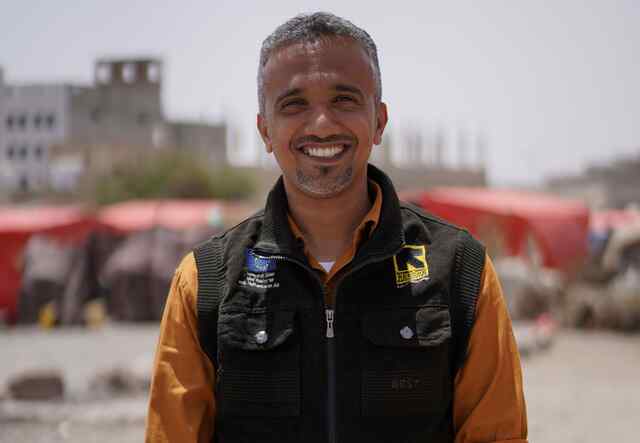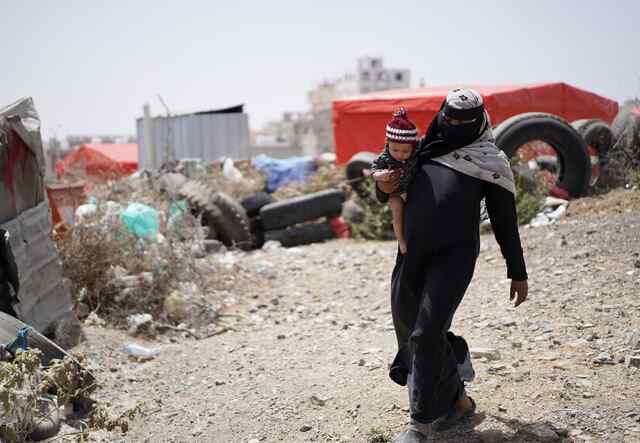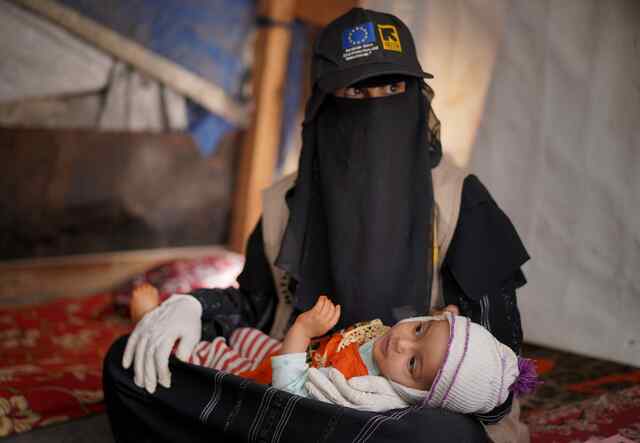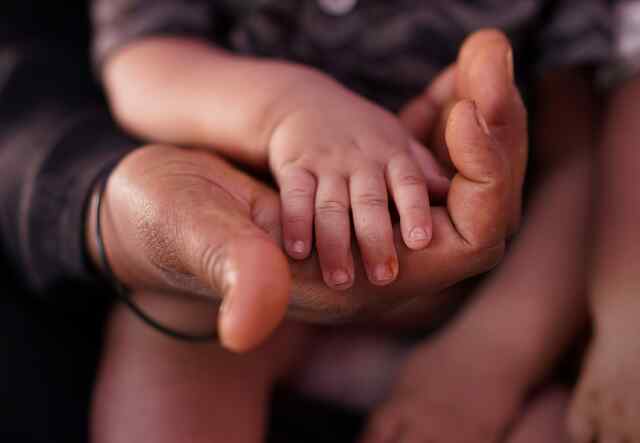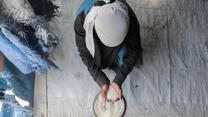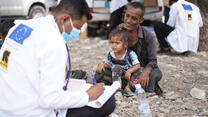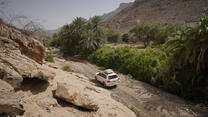Even before the nine-year long crisis, Yemen’s malnutrition rate was already ranked one of the world's worst.
Protracted conflict and economic decline have led to the breakdown of public services, leaving millions of public servants - including healthcare workers - without regular salary payments.
The IRC has been providing health services in the country since 2015 - and currently provides primary healthcare services, including sexual and reproductive health, mental health, and community health in seven governorates - through mobile health teams. With funding from the European Union (EU), these mobile clinics provide assistance to vulnerable families in hard-to-reach areas without access to healthcare facilities.
Dr. Waood, health projects officer in Aden, during her visit and inspection of the mobile clinic vehicle work progress.
Photo: Gabreez Productions for the IRC
Yemen remains highly susceptible to disease outbreaks such as cholera, dengue fever, malaria and measles, with women and children in disproportionately higher risk of exposure. As economic instability deepens, almost 80% of families live in extreme poverty - barely making ends meet to afford enough food per day.
Ghadeer, 3 years old, eats peanut paste given to her by IRC health workers.
Photo: Gabreez Productions for the IRC
Rising food insecurity is one of the key drivers of protection needs in Yemen. Women and girls are disproportionately impacted, and are at increased risk of violence, exploitation and abuse. Currently, more than 17 million people in Yemen require protection assistance.
Families in Yemen resort to negative coping mechanisms, such as begging for food and money, while children are at increased risk of child marriage, child labour and dropping out of school.
Photo: Gabreez Productions for the IRC
Approximately 2.2 million Yemeni children under the age of 5 suffer from acute malnutrition.
Asriya Abdo Hassan is a 28 year old mother of twins who was displaced to Sahdah camp, located in the southern governorate of Al-Dhale’e.
Asriya and her family lived in the Hodeidah district, where they owned their own house and cattle - until one day, their neighbourhood was bombarded with airstrikes.
“We were displaced because of the war, shelling, tanks, and rockets that targeted our home. We left our cattle and house, carrying nothing with us, except our clothes. We could barely save our lives and had to flee.”
Photo: Gabreez Productions for the IRC
With her husband unable to find employment and the prices of food continuously skyrocketing, the family struggles to afford basic necessities - even mattresses for their tent or food.
Asriya is a 28-year old client of the IRC’s mobile health programme in Al-Dhale’e, located in southern Yemen. Asria lives with her husband and 9 month old twins in Sahdah Camp, which hosts IDPs from other parts of Yemen that have fled conflict. Asriya’s 9 month old twins, Abdo and Asma, started to develop signs of malnutrition due to the inability of the family to secure adequate food.
Photo: Gabreez Productions for the IRC
Subsisting on a meager diet of vegetables or rice, Asriya’s 9-month old twins, Abdo and Asma, began to develop signs of severe malnutrition.
“No one was expecting them to live. I wasn't eating or drinking because of their sickness. I was sitting next to them, waiting for their death.”
“No one was expecting them to live,” recalls Asriya. “I wasn't eating or drinking because of their sickness. I was sitting next to them, waiting for their death.”
In southern Yemen, the IRC's mobile clinic team compares the child's weight with the mother's weight to find out whether the child needs nutrition supplements or not.
Photo: Gabreez Productions for the IRC
Eventually, they were treated at one of the IRC’s EU-funded mobile health clinics. “I tell Abdo and Asma, that they are children of the IRC - because they are the ones who saved your lives,” she says.
The IRC health team uses this paper gauge, called a mid-upper arm circumference measure (MUAC), to quickly identify if the child is at risk of malnutrition, and if he shows signs of recovery during the treatment.
Photo: Gabreez Productions for the IRC
The mobile health team measures the weight and height of a child to determine whether they need nutrition supplements or not. Using tools such as mid-upper arm circumference (MUAC) tape, they are also able to determine the level of malnutrition - moderate or acute - in order to check whether a child they are treating has made a recovery.
With skyrocketing prices for food and basic commodities affecting families, including those displaced by the conflict, the work the EU-funded clinic does is crucial to families like Asma’s, as they receive treatment free of charge.
Asriya’s 9 month old twins, Abdo and Asma, started to develop signs of malnutrition due to the inability of the family to secure adequate food.
Photo: Gabreez Productions for the IRC
Before the treatment for malnutrition, the twins were extremely weak, barely able to eat food or open their eyes. However, much to their mother’s relief, the treatment was a success; Abdo and Asma are laughing, crawling, and playing again.
Dr. Ala'a Mohammed, a Nutrition Officer with the IRC in Yemen, leads the EU-funded mobile health team. These mobile clinics target camps like Sahdah, where basic amenities are scarce, and assist displaced families with urgent medical care needs.
Photo: Gabreez Productions for the IRC
Dr. Ala'a Mohammed, a Nutrition Officer with the IRC in Yemen, leads the EU-funded mobile health team. These mobile clinics target camps like Sahdah, where basic amenities are scarce, and assist displaced families with urgent medical care needs.
Photo: Gabreez Productions for the IRC
“Most camps lack minimal health services, adequate shelter, and medical supplies,” says Dr. Ala’a, describing the dire conditions. “Most also lack water supply and don't have a sanitation network.”
He explains how most people lost their jobs with the start of the war in 2015. For a country that imports 90% of its food, disruption of global supply chains and the depreciating Yemeni rial have made it impossible for most people to afford food and medication.
Photo: Gabreez Productions for the IRC
The EU-funded IRC mobile health clinic provides doctors to treat patients, a midwife to help pregnant and lactating women, immunisation services, a pharmacist who dispenses medication, a nutrition assistant who pays attention to malnutrition among children, as well as a counselling service that raises awareness among the families.
Midwives like Huda provide Asriya with information on the proper diet for herself and her children, to ensure their health and safety. She also advises pregnant women and new mothers in the camp on how to best take care of themselves and their babies.
Photo: Gabreez Productions for the IRC
The challenging work conditions and long travel distances do not deter the IRC’s mobile health team from delivering assistance to those in need.
“When we see children at risk of death, we treat them until they recover and regain their health completely,” says Dr. Ala’a, describing what keeps his team motivated, despite the risks involved. “These successes only motivate us. We are always available for the needs of children and those in the camps.”
The IRC in Yemen
The IRC has been working in Yemen since 2012 and rapidly scaled up our support in 2015 to address greater humanitarian needs. While the ongoing conflict and restrictions of air and seaports create challenges, the IRC’s in-country 348-person staff and 648 paid volunteers maintain access to affected populations and continue to provide critical healthcare, as well as support for economic empowerment, women’s protection and empowerment, and education.
About our work with the European Union
